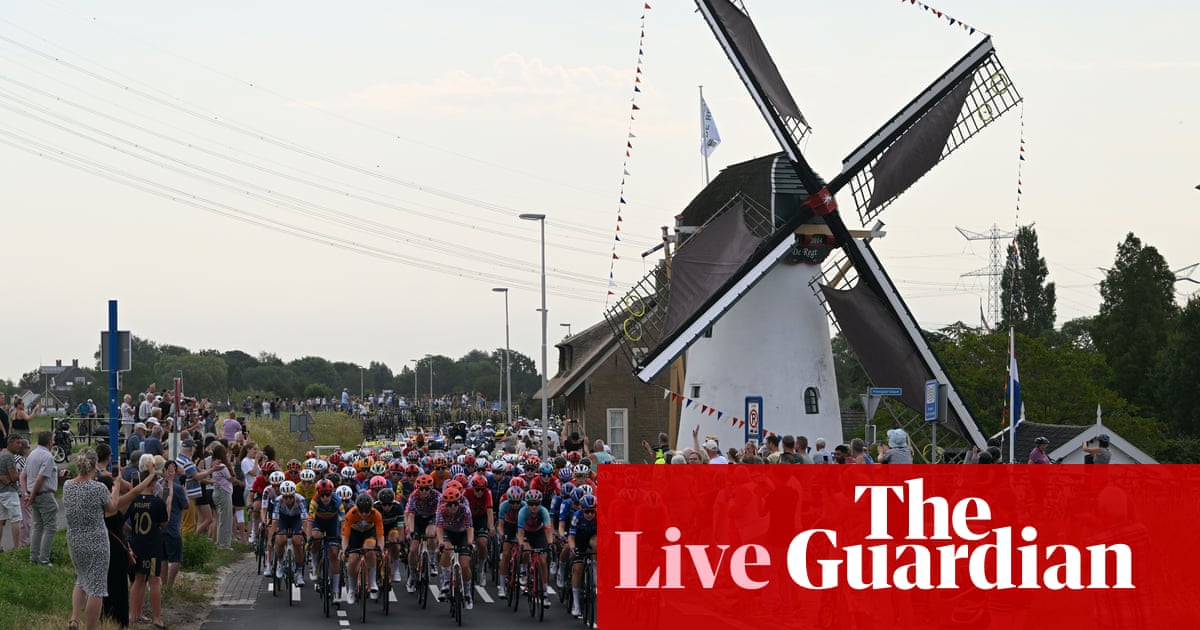To a country that takes pride in its gastronomic delights, Australia’s Olympic team will be bringing their own lunch. At next month’s Paris Games, Four’N Twenty pies, Weet-Bix and Vegemite will be available to the country’s elite athletes in an expanded home pantry in the athlete’s village alongside coffee served by three travelling baristas.
The culinary home comforts are a key part of the Australian Olympic Committee’s plans for success at the Games, which were unveiled on Wednesday. They include security protocols, medical measures and logistical preparations for the team travelling to France, in an operation that will cost $24m.
Almost 1,000 Australian athletes, coaches and staff, as well as hundreds more family and friends will make the trip.
Chef de mission, Anna Meares, said making familiar foods available was trialled during the Tokyo Games. The initiative received strong support from athletes, prompting an expanded menu of products in Paris and work with the local chefs to deliver authentically Australian dishes.
“It might sound simple and little, but don’t underestimate the power of what familiarity and a taste of home can do for athletes who have spent already weeks if not months overseas on the road,” she said.
Brands like Weet-Bix, Vegemite, Special K, Milo and Four’n Twenty pies will be offered alongside dishes favoured by the athletes, including poke bowls, savoury slices and yoghurt.
Three nutritionists will be part of the team, and the AOC is employing another three people to make coffee, which will be available each day alongside freshly baked goods from 6am.
Meares said the most common question she has been asked by athletes in the lead-up was if the baristas – which were introduced in Tokyo – were returning. In response, she asked them why it was so important to them.
“The simple answer was it gave them a social hub to create a normal environment to be able to come together and socialise,” she said. “How we can recreate normal in abnormal environments is really important for them.”
Under the so-called “new norms” of the Olympic movement, which are designed to reduce the size, cost and impact of hosting the Games, athlete village sizes have shrunk.
In Paris, the Australian accommodation has 500 beds across apartments ranging in size from one bedroom to four. But in a team of around 460 Olympians across 16 days of competition – in addition to coaches and staff – it means competitors will be asked to vacate their beds within 48 hours of their competitions finishing.
The Australian contingent are being encouraged to be in Paris for the closing ceremony on 11 August, when beds will be provided, but finding accommodation for the intervening period will be up to the athletes. Accommodation in the French capital is close to capacity, and a single night in a Paris hotel during the Games costs upwards of $500.
Meares said a key goal for these Games is ensuring the village is a healthy environment for athletes throughout the 16 days of competition, and urged athletes not to visit after their competition concludes if they are not feeling well. “If you are hung over, don’t come in, it’s just common sense,” she said.
The Tokyo Games – operating under strict Covid protocols – saw a 90% reduction in presentations to team doctors, and the AOC is encouraging athletes to retain many of the the pandemic-area practices. These include avoiding social gatherings in the lead-up to the Games, wearing masks in crowded areas, and washing hands regularly.
Recent geopolitical issues in Ukraine and Gaza have triggered global protests, and Meares said Australian athletes were entitled to express their personal opinions as long as it wasn’t on the medal dais or in the field of play. But she urged the team to consider the impact of their words on others.
“These are very hard times for a lot of people, and so there is emotion, there is despair, and it’s with empathy and respect that we have to consider our voice and how we use it,” she said.
The team is also mindful of the risk of heatwaves. The Paris organising committee has pursued sustainable building practices for the village, which includes blockout shutters and double glazing of windows to reduce the temperature of living quarters, but there was no air conditioning installed.
To aid sleep of athletes – many of whom will be required to rest during the day to prepare for evening finals – the AOC has itself installed air conditioners in every room.
Meares said the decision by organisers to forego air conditioning wasn’t a mistake, and they should be applauded for their pursuit of a “green nature” of the village, but the Australian decision to include air conditioners was “strategic for high performance”.







